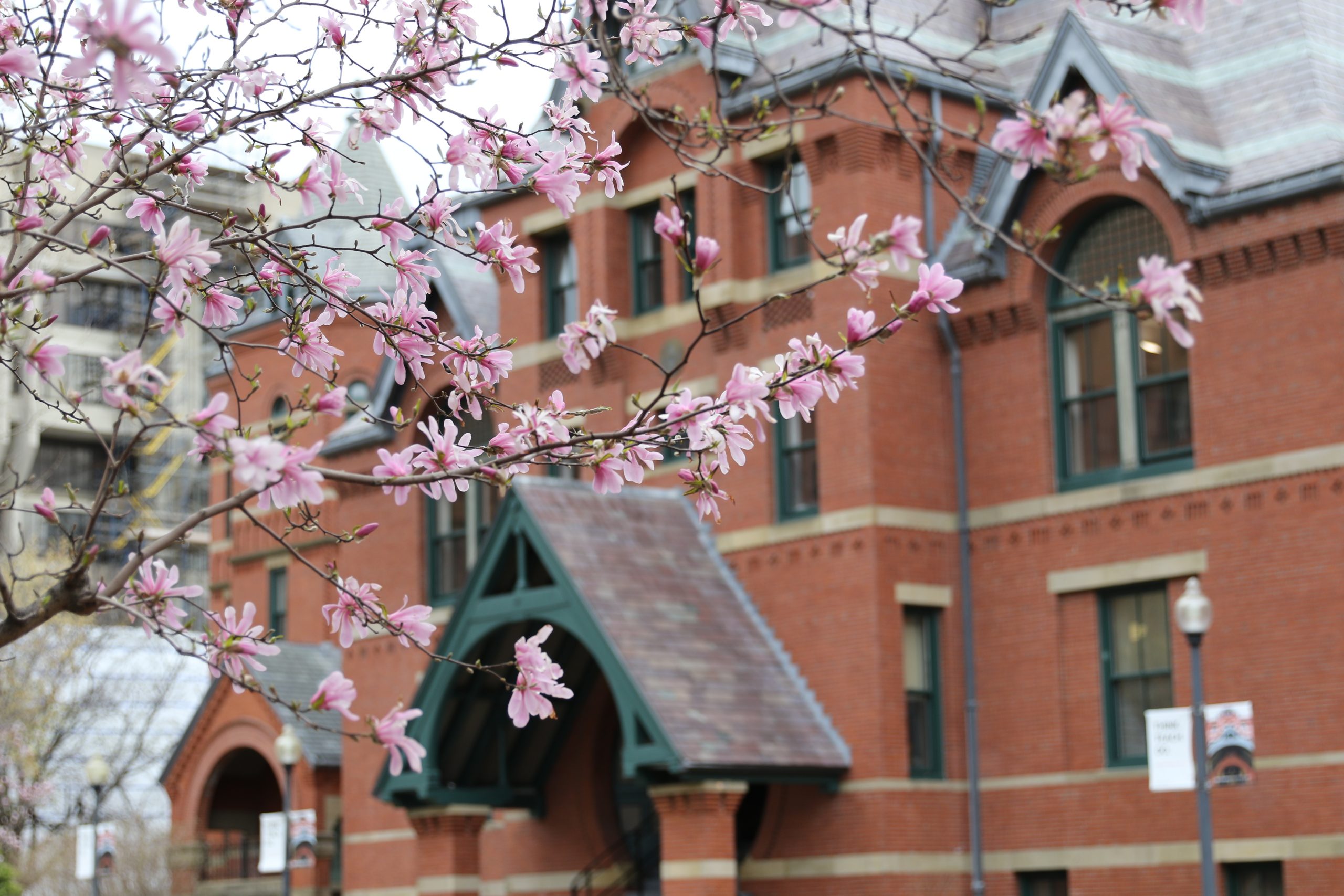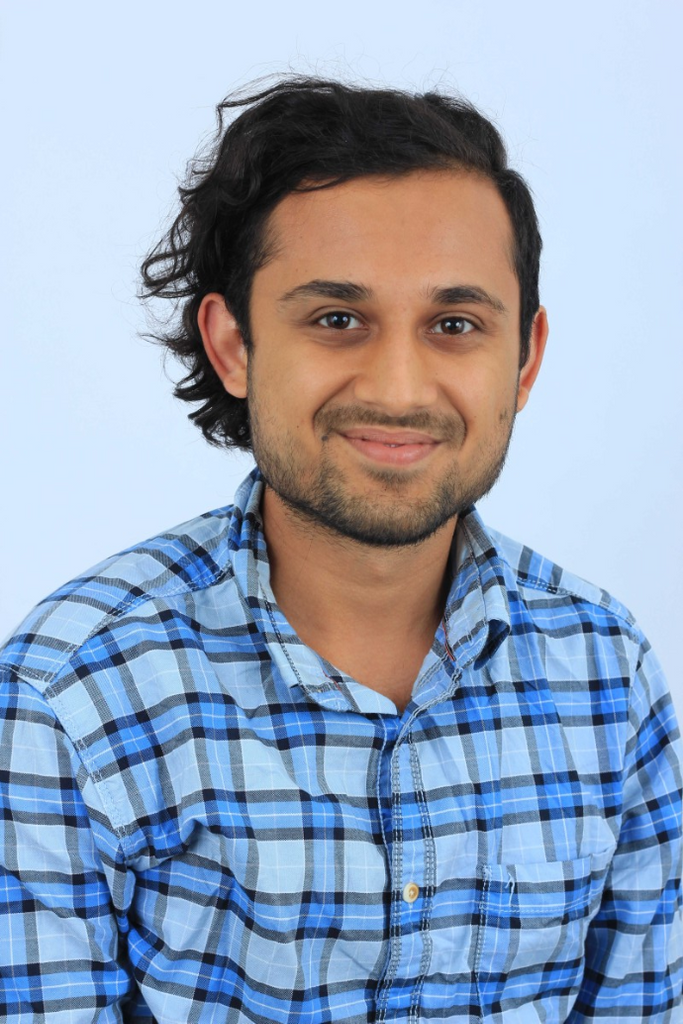Generation Health Practicum Initiative Bears Fruit.

Generation Health Practicum Initiative Bears Fruit
Rupak Bhatt is part of the first group of MPH students to receive funding through the initiative to support their practicum work with a community organization.
Rupak Bhatt wears many hats as one of three co-directors of a youth-focused nonprofit, and has structured his week to be able to navigate all of the real-world duties that his practicum entails: grant writing, relationship building, project management and evaluation, youth advising and programming.

“Working for a new and upcoming nonprofit is a lot of work. It is easy to work yourself to a pulp, especially when it is an issue you care about a lot,” says Bhatt, who is completing his practicum at Health Comes First (HCF), a BIPOC-, queer- and youth-led nonprofit organization working to empower young people in the Greater Boston Area to lead healthy lives in and out of school.
Bhatt is part of the first group of students to receive funding for what would otherwise be unpaid or underpaid practica through Generation Health, an initiative SPH announced last fall. At the time, less than half of SPH students received funding for their practicum, consistent with the more than 40% of unpaid higher education internships across the country. This lack of funding led students who were unable to accept an unpaid position to seek additional job opportunities or pursue practicum experiences that might not align with their interests.
Made possible by the philanthropic support of SPH’s alumni and friends, Generation Health advances the School’s core commitments to ensure equitable opportunity for all students, and to engage with community organizations whose work aligns with the School’s values of improving health for all, with particular concern for the marginalized and vulnerable.
“Generation Health is an investment in the future of public health,” said Dean Sandro Galea at the launch of the initiative, where SPH pledged to invest $1 million over the following two years and set an ambitious goal to reach complete funding for all students over the next several years.
Generation Health is the latest effort at the School to financially support students during the 240-hour practicum experiences required for the on-campus MPH degree. The first iteration, the Practicum Scholar Award, gave 25 students $1,000 stipends. The second, the Practicum Access Awards, gave 34 students $3,600 stipends. Generation Health awards students up to $5,000 stipends, enabling more SPH students to seek out practicum opportunities that align with their public health goals without worrying about financial barriers. Of the 25 students who applied this spring, 100% were funded, bringing the portion of paid practica up from under half in 2022 to 67% in 2023 so far.
“The Generation Health funding allows me to take care of myself,” says Bhatt, who, in addition to his practicum, works as a graduate resident assistant at BU and is enrolled in classes earning credits towards his dual certificates in global health and health communication and promotion.
HCF is primarily funded by the Boston Center for Youth and Family’s SuccessLink Youth Jobs program and spends most of its budget paying youth participants for the time, energy, and expertise they bring to HCF’s activism and advocacy work. The internal team would often work pro bono to ensure what funding they had went to support youth, says Bhatt. “The Generation Health funding not only allows me to pursue my passion for community betterment, youth development, and health equity, but it also indirectly contributes a lot to HCF’s pursuit of promoting youth health and well-being in the Greater Boston Area.”
A group of teenagers from Boston Latin Academy (BLA) founded HCF in March of 2020 during the nationwide lockdown at the start of the COVID-19 pandemic. The teens were hoping to combat the negative effects of social isolation and were navigating loneliness and increased stress and anxiety with limited access to mental health resources. They launched a campaign to change how schools address mental health in marginalized communities. Their pilot work culminated in the passage of a historic proposal to put health first in the BLA schedule. Now the more than 1,700 students and 100 staff at BLA have access to “wellness blocks” twice a week, every week, for the entirety of the school year. HCF aims to build on their success at BLA and scale their impact to BIPOC student communities across Boston.
Around the same time that HCF was founded, Bhatt was studying economics and philosophy at Luther College in Iowa. He graduated in 2020 at the height of the pandemic. During the summer of widespread racial unrest following George Floyd’s murder, Bhatt took a job working as a racial justice and public policy program assistant at the YWCA Minneapolis. He later worked at the Healing Justice Foundation under the organization’s founder Dr. Joi Lewis, a community healer and facilitator of Black liberation work based in Minneapolis. Upon his acceptance to SPH, Bhatt moved to Boston to pursue his MPH and continue to build a career in health equity.
“When I spoke to Rupak about his practicum, he radiated passion for the work that he was doing to empower youth activism and advocacy,” says Ryan Wisniewski, assistant director of the practicum program. Wisniewski notes that of the 98 students to apply for Generation Health funding for the summer, 50 have been notified of funding and the remainder were added to a waitlist. To meet SPH’s goal of providing full funding, further support from industry partners and leaders of public health is essential.
“With Generation Health funding, students are able to act on passions and pursue practicum within organizations that lack the funding to support student work – creating opportunities to tackle important public health issues without creating additional financial burden on students,” Wisniewski says. “I feel so honored to be able to oversee the operation of this program knowing that it is opening so many doors for incredible experiences like Rupak’s.”
